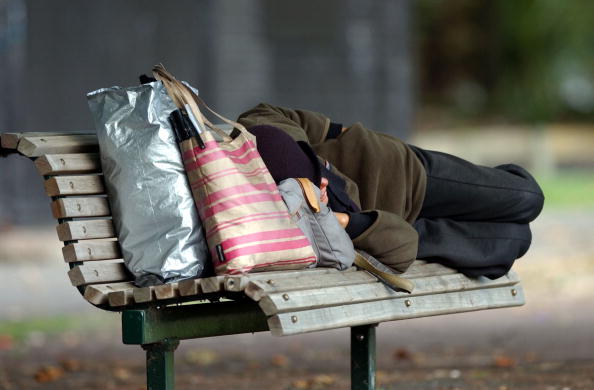This year, Homelessness Week (2-8 August), comes in the midst of a recession spurred on by the pandemic that’s wreaked havoc on both the health and financial wellbeing of many around the world.
Job losses, layoffs and reductions in working hours have placed strain on millions of Australians – pushing more people, in the ACT and across the country, into rental stress and homelessness.
While the ACT has been cushioned from the full brunt of the economic turmoil due to some 40% of the Canberra workforce being employed in either the ACT or Australian public service, that hasn’t protected everyone.
Australian Bureau of Statistics job data shows some 27,400 Canberra residents were underemployed in June, an increase of 7,300 on February 2020, while 10,100 Canberrans were unemployed in June, which was 2,100 more than in February.
The most recent data on homelessness, from the 2016 Census, showed there were 1,596 homeless people in the ACT.
On Wednesday 5 August, the ACT Government invested $61 million into public housing to build at least 260 homes.
$32 million will be spent on land, extending the Growing and Renewing Public Housing program for a 6th year.
A further $20 million will allow for the construction of 60 additional new public housing dwellings. This bring the total additional public housing under the program to at least 260 homes, plus the renewal of 1,000 properties.
The focus of the additional construction will be on housing for people with a disability and older Canberrans through Class C adaptable builds.
Earlier this week, ACT Minister for Housing Yvette Berry pointed to the ACT Government’s $3 million COVID-19 funding for Canberrans experiencing or at risk of homelessness or experiencing domestic and family violence.
This funding went toward establishing and expanding accommodation and support programs such as the Winter Lodge, Axial Housing Program and MacKillop House.
As at 19 July: 25 women (with and without children) have been accommodated at MacKillop House since opening on 2 June 2020; 22 clients have been permanently housed through the Axial Housing Program; and 79 men have been accommodated at the Winter Lodge since opening on 11 May 2020.
Of these men, 25 have exited into longer-term accommodation and nine are currently residing at the Winter Lodge.
Canberra Liberals leader Alistair Coe said the ACT Government’s current homelessness strategy is piecemeal and fails to address the key issue of housing affordability.
“Canberra is the most expensive city in Australia to rent a house and has the highest proportion of poorer people in rental stress in the country,” he said.
“ACT Labor and the Greens have completely overlooked the fact that an increasing number of hardworking and aspirational Canberra families are in significant housing stress, with many facing homelessness.”
Earlier during Homelessness Week, ACT Council of Social Service (ACTCOSS) called on the ACT Government to invest in social housing to address a 3,000-dwelling shortfall in the Territory.
ACTCOSS CEO, Dr Emma Campbell, said “the lack of social housing means more people end up homeless because they can’t find an affordable home, and those who are already homeless have no way to escape it”.
“It makes sense economically and is critical infrastructure for inclusive growth during the next phases of COVID-19. For every dollar invested, direct public investment in social housing is estimated to boost GDP by $1.30,” she said.
Dr Campbell called on the ACT Government to work together with the Federal Government on the social housing shortfall.
“For a while now, the ACT Government has flagged that it will announce further investment in the construction of new social housing as part of the COVID-19 recovery measure.
“With the Chief Minister due to deliver a major economic update later this month, ACTCOSS will be keen to finally see words turn into action through a significant investment in social housing.”
The ACT Greens echoed the call from ACTCOSS to “urgently” address Canberra’s housing crisis, while championing their own $450 million homelessness strategy they will take to the 2020 ACT election this October.
Of that funding, $200 million would go towards creating 600 new rental properties for community housing and $200 million to create 400 new public housing properties.
Additional funding would be channelled toward various specialist homelessness services.



